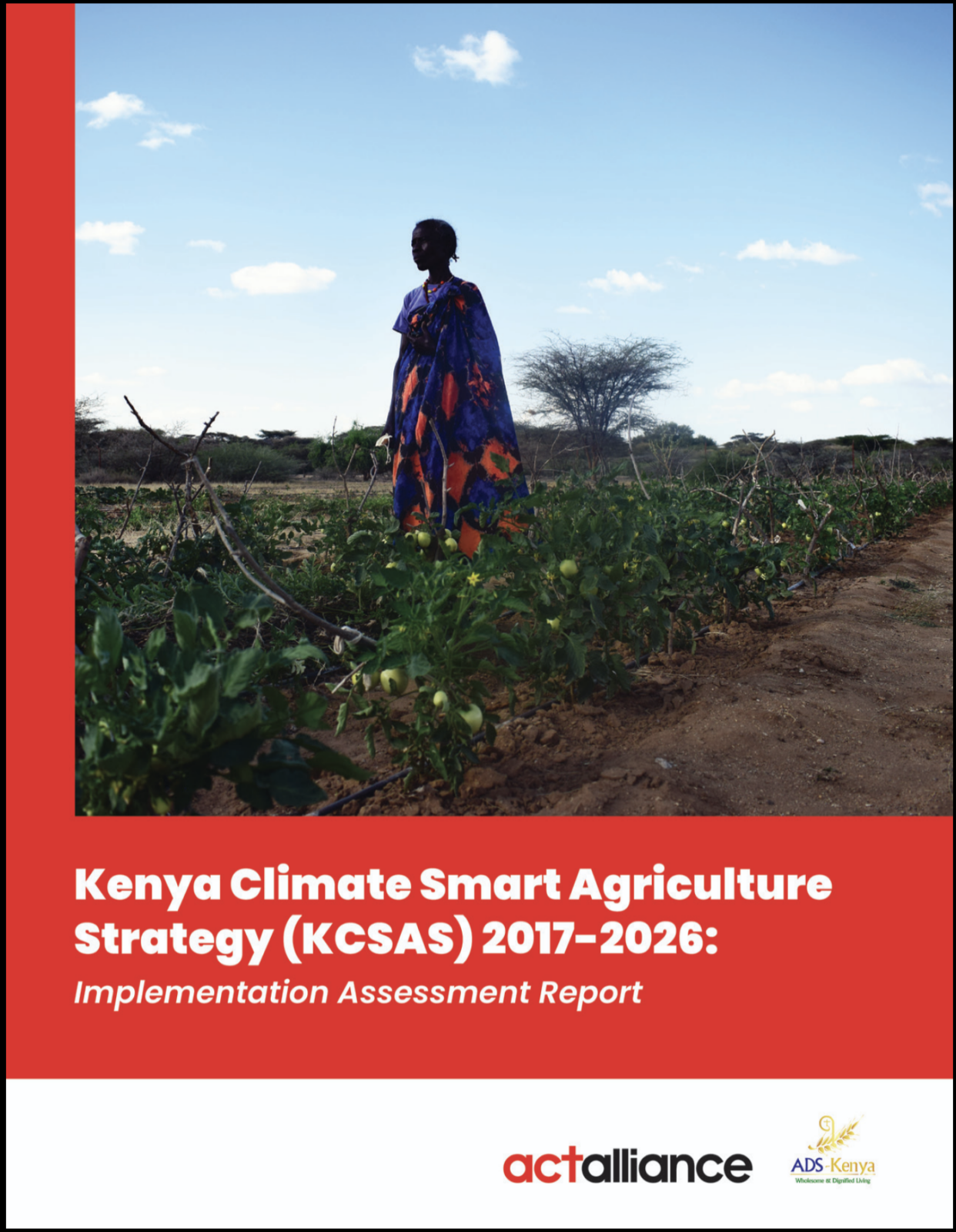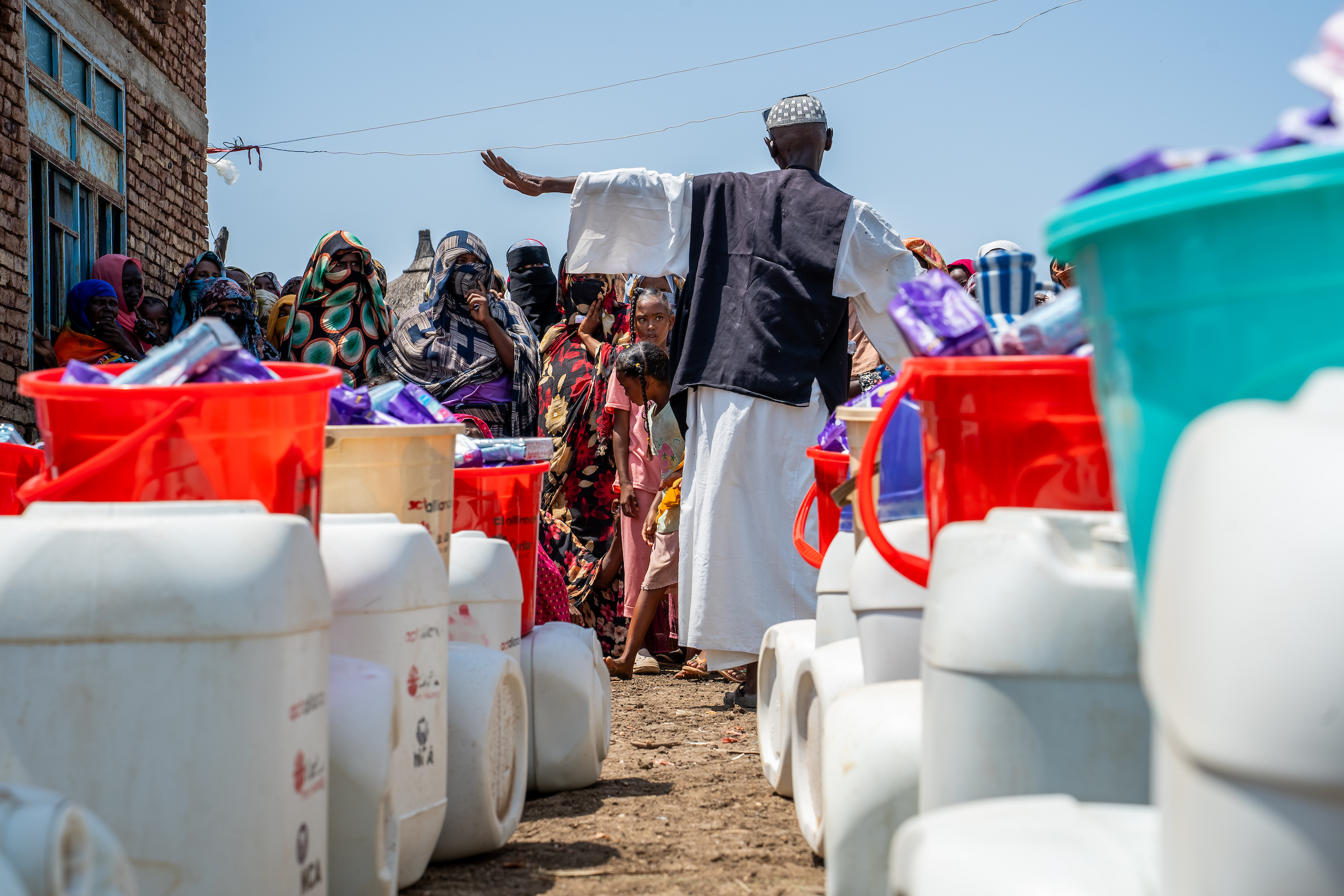Parties continued with the negotiations at this year’s Bonn Climate Change conference (SB62), although the absence of the USA had been expected to cast a heavy shadow. Progress remained limited. Finance emerged as the key sticking point, with developed countries showing persistent reluctance to provide the necessary resources for climate action. Globally, the rerouting of climate finances to other priorities and declining official development assistance are undermining international cooperation and weakening multilateralism. Meanwhile, the climate emergency continues to transcend political, cultural, geographical, economic, and social boundaries, affecting individuals, communities, ecosystems and economies alike. Its impacts push the most vulnerable into uncharted territory, underscoring the urgent need for fair and just climate finance.
As negotiations unfolded in Bonn, several critical issues stood out across the agenda, revealing both challenges and opportunities on the road to COP30 in Brazil in November. Below are some of the key outcomes and reflections from the SB62 talks.
Adaptation
Adaptation remained high on the agenda, with discussions covering the Global Goal on Adaptation (GGA), the UAE-Belém Work Programme, National Adaptation Plans (NAPs), transformational adaptation, monitoring, evaluation and transparency, adaptation communications, and the Adaptation Committee review.
The adoption of the Global Goal on Adaptation Framework at COP28 laid the foundation for a new approach to pursuing shared adaptation targets. These targets reflect the diverse realities of human, social, and sectoral adaptation needs while underscoring the importance of strengthening institutional, policy, and financial systems to deliver ambitious and impactful adaptation actions.
Implementing the framework now requires developing indicators that are centred on people and nature, bridging the adaptation finance gap and enabling fair assessments of progress. However, the SB62 talks were hampered by disputes over how to integrate finance indicators and organise the indicator development process ahead of COP30. Without adequate finance for vulnerable developing countries, implementation of the GGA will remain out of reach.
“Drawing experience from COP29 that left many developing countries disillusioned with concerns on transparency and equity, SB62 negotiations should have provided opportunity for more productive discussions that would foster unity and concrete outcomes on Climate Adaptation. With extremely sensitive areas of differing views, the work ahead by countries and experts must pave the way for a strong adaptation decision at COP 30.” Irene Anena, ACT Uganda Forum.
“Drawing experience from COP29 that left many developing countries disillusioned with concerns on transparency and equity, SB62 negotiations should have provided opportunity for more productive discussions that would foster unity and concrete outcomes on Climate Adaptation. With extremely sensitive areas of differing views, the work ahead by countries and experts must pave the way for a strong adaptation decision at COP 30.”Irene Anena ACT Uganda Forum
Finance
Finance remained a central issue at this year’s Bonn climate conference. After last year’s disappointing outcome on the New Collective Quantified Goal (NCQG), Parties focused their attention on the Baku to Belém Roadmap, which proposes mobilising at least $1.3 trillion annually by 2035.
Discussions during the first week in Bonn centred heavily on investment and the role of private sector capital in meeting this target. However, this approach has repeatedly proven inadequate. Private finance lacks predictability and accountability, and unlike states, private actors cannot be compelled and held accountable in providing finance where it is needed most.
As we look towards COP30, there is a pressing need for a clear roadmap outlining responsibilities, timelines, and the quality of finance. Public finance must be at the heart of these discussions, prioritising high-quality resources in the form of grants and concessional loans. This is essential for building resilience in the poorest nations, supporting adaptation efforts, enabling decarbonisation, and addressing loss and damage.
“It is a moral failure to expect the world’s most vulnerable to face the climate crisis alone. Climate finance is not a policy option, it is a responsibility to those who have contributed the least to this crisis but suffer its worst consequences. We need a clear, accountable roadmap that puts people before profit and delivers real support where it’s needed most.” Illari Aragon, Christian Aid.
Exchanges on the need for a new adaptation finance goal have been resolute. Bonn featured a growing understanding that the current ‘doubling adaptation finance goal by 2025 target’ requires a much more ambitious successor.
Nationally Determined Contributions (NDCs)
While NDCs were not discussed in the SBs within the formal agenda, they remain a key to achieving climate goals and limiting global temperature rise to 1.5C. Not enough countries have submitted their updated, more ambitious NDCs to date. All parties to the UNFCCC should ensure they have updated their NDCs. These new, more ambitious NDCs should not only address mitigation but crucially consider adaptation actions, just transitions and loss and damage. Countries must course correct the warming trajectory by committing to ambitious greenhouse gas emissions cuts with major emitters leading the way. Profiling and implementing working stakeholder engagement approaches is also necessary in the formulation of the NDCs.
NDCs must not merely be words on paper, but NDC commitments must move into real implementation. Finance must be available to support the achievement of these commitments, in the form of grants, and fair terms are required to support real on-ground actions.
Loss and Damage
Loss and damage was on the agenda at SB62, including discussions through the Warsaw International Mechanism (WIM) review. However, it received limited attention, raising concerns about its inclusion in the Baku to Belém Roadmap.
“The dream of having loss and damage fully established as the third pillar of climate action is fading by the day. In Baku, it was a sideshow, and the COP30 Presidency has failed to instill confidence that Loss and Damage will receive the attention it deserves, despite it being ‘the COP of the people’. It must be prioritised in the Baku to Belém Roadmap, alongside ensuring the flow of much-needed resources.”Sostina Takure ACT Zimbabwe Forum
“Loss and Damage did not get the attention it deserves in the Bonn negotiations. Finance for Loss and Damage is equally as important as Mitigation and Adaptation, and it must become a key element of the COP30 agreement.” Mattias Söderberg, DanChurchAid.
“The dream of having loss and damage fully established as the third pillar of climate action is fading by the day. In Baku, it was a sideshow, and the COP30 Presidency has failed to instill confidence that Loss and Damage will receive the attention it deserves, despite it being ‘the COP of the people’. It must be prioritised in the Baku to Belém Roadmap, alongside ensuring the flow of much-needed resources.” Sostina M. Takure, ACT Alliance Zimbabwe Forum Coordinator
“Loss and damage must be firmly placed on the agenda for COP30 and addressed comprehensively. This includes recognizing non-economic losses such as the loss of culture, heritage, identity, territory, and biodiversity – losses that affect the full range of human rights.’’ Elena Cedillo, Lutheran World Federation
Mitigation
Mitigation did not make much progress in the SB62 talks. Movement is hampered by both the reluctance of developed countries to acknowledge the need for finance, and the unwillingness of many parties to act on the existing commitments to transition away from fossil fuels.
“Our future depends on the efforts of current governments to reduce emissions, and to enter a transition towards a green and resilient future. We now call on all parties to ensure that their national climate plans are aligned with the 1.5 degree target.” Mattias Söderberg, DanChurchAid.
Gender
SB62 resulted in a draft Gender Action Plan (GAP), developed through collective inputs from Parties and observers during a constructive workshop led by the Secretariat and co-facilitators in Bonn. This inclusive process was widely welcomed, with many Parties expressing strong commitment to delivering an ambitious and implementable GAP for the coming years. ACT Alliance and other observers appreciated being meaningfully included in these discussions, alongside youth and women’s constituencies such as YOUNGO and WGC.
“Despite the meaningful progress on gender at SB62, the omission of gender in the COP30 Presidency’s fourth letter, listing its 30 key objectives, is deeply concerning. Climate action that fails to address gender justice is not only incomplete but fundamentally unjust.”Elena Cedillo Lutheran World Federation
“For COP30 to deliver meaningful progress, we must adopt an ambitious and actionable Gender Action Plan—one underpinned by robust financial and technical support for the world’s most climate-vulnerable nations. Guided by my faith in the inherent dignity of every person, created in the image of God, I hope no party will undermine the inclusive and participatory efforts vital to achieving gender-just climate solutions.” Margareta Koltai, Act Church of Sweden
“It is critical that civil society, youth and frontline communities, those who live and work where climate-induced disasters strike, are meaningfully engaged in the development and implementation of the Gender Action Plan. They must not be seen merely as beneficiaries, but as leaders, changemakers, and partners in driving climate resilience. This includes the full participation of women, persons with disabilities, children and youth, Indigenous people, and the promotion of positive masculinity through the active involvement of men and boys.” Jessica Novia, YAKKUM
However, concerns remain. The Secretariat’s budget for implementing the GAP is still underfunded, and developing countries continue to highlight the need for adequate means of implementation. Additionally, some Parties are questioning already agreed language on gender and human rights, making it crucial to safeguard the following:
- No backsliding on agreed language from COP29’s Gender Programme.
- Ensuring Parties find areas of compromise to adopt an inclusive, actionable GAP that upholds gender rights and references women environmental and human rights defenders, Indigenous women, and the gender-climate nexus, while retaining commitments to gender- and age-disaggregated data.
- Securing financial and technical support for climate-vulnerable countries and national gender and climate focal points to effectively implement the GAP.
- Ensuring gender is mainstreamed across the entire UNFCCC framework, rather than treated as a side activity.
“Despite the meaningful progress on gender at SB62, the omission of gender in the COP30 Presidency’s fourth letter, listing its 30 key objectives, is deeply concerning. Climate action that fails to address gender justice is not only incomplete but fundamentally unjust.” Elena Cedillo, LWF.
Conclusion
The June session of the UN climate talks in Bonn was a crucial midpoint on the road to COP30 in Belém, with its outcomes set to significantly influence the agenda and decisions at COP30. Brazil came to SB62 hoping to set a positive tone, but familiar divisions quickly resurfaced, mirroring the dynamics seen at the Baku talks. A two-day fight over the agenda delayed negotiations until Wednesday, slowing momentum.
While the COP30 Presidency has made clear efforts to push for ambition, addressing the tough issues ahead will be essential. Learning from the slow start at SB62 is critical to build momentum, foster trust, and bring countries together to raise climate ambition at COP30.
“The Brazilian Presidency should lead the COP30 journey with unwavering commitment to bridge differences observed in Bonn, reclaim trust in multilateralism, and with foresight, deliver decisive, fair, and lasting climate solutions for vulnerable nations.’’ Julius Mbatia, ACT Alliance.
COP30 must be a turning point that delivers not only on ambition but on equity, finance, and justice for those facing the greatest climate risks.




